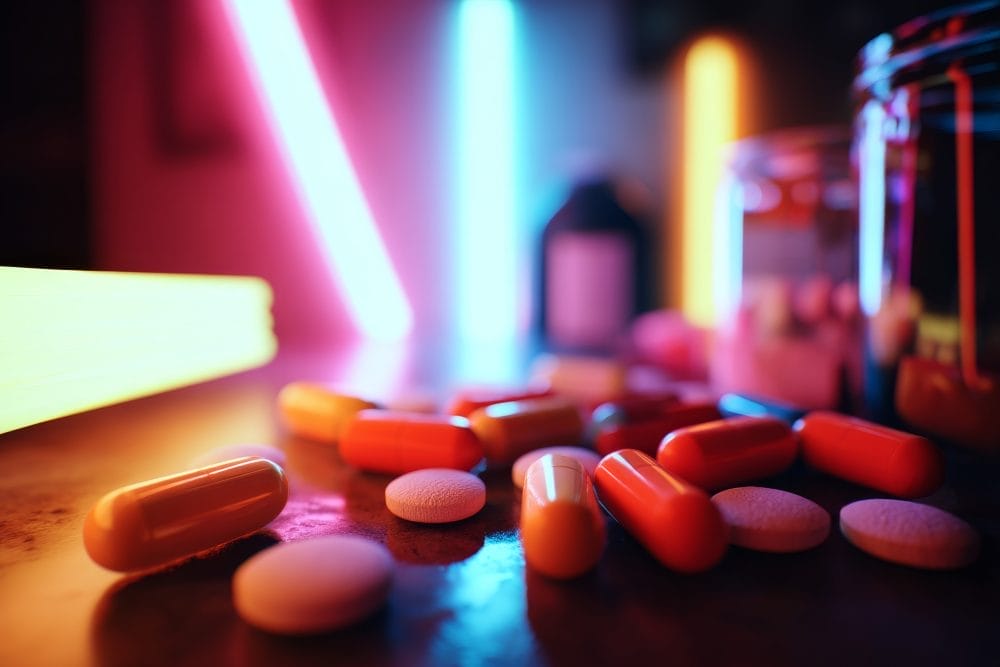When your toddler is sick or uncomfortable, the instinct to provide fast relief is strong. But not all prescriptions—or over-the-counter remedies—are safe, even if they’re commonly used or recommended by others. Some medications for toddlers come with hidden risks, misunderstood dosing instructions, or side effects that can lead to serious complications. The problem? Many parents don’t even know these medications should be used with extreme caution—or avoided entirely. Here are five medications for toddlers you may not realize are risky, along with safer options and expert-backed advice.
1. Codeine-Based Cough Syrups
It might seem harmless to give a toddler something to ease a nasty cough, especially if it’s disrupting sleep. However, cough syrups containing codeine can be incredibly dangerous for young children. The FDA has warned against giving codeine to anyone under the age of 12 due to the risk of slowed breathing and even death. Some children metabolize codeine more quickly than others, which can cause it to act like a much stronger drug. Always check cough medicine ingredients and consult your pediatrician before giving any cough suppressant to your toddler.
2. Promethazine (Phenergan)
Promethazine, often prescribed for nausea, vomiting, or allergies, might sound like a helpful solution—especially on long road trips or during illness. But this medication can be harmful to toddlers, particularly those under age two. The FDA has issued warnings about severe breathing problems and even fatalities linked to promethazine in young children. While it may be prescribed off-label, parents should be aware of the risks and ask about safer alternatives. Natural remedies like electrolyte hydration and bland foods are often better first steps for mild tummy troubles.
3. Aspirin
Aspirin is almost always off-limits for toddlers, yet some parents may mistakenly use it thinking it works like other pain relievers. The biggest concern is Reye’s syndrome, a rare but serious condition that can cause liver damage, brain swelling, and even death in young children recovering from viral infections. It’s especially dangerous when given during or after illnesses like the flu or chickenpox. Stick to age-appropriate acetaminophen or ibuprofen under your pediatrician’s guidance. And if aspirin is ever prescribed, ask for clarification on whether it’s the right medication for your child’s condition.
4. Benzocaine Teething Gels
Teething is hard—for kids and parents alike—but numbing gels that contain benzocaine are not a safe solution. These topical pain relievers can cause a rare but life-threatening condition called methemoglobinemia, which reduces the amount of oxygen carried in the blood. The FDA has advised against using benzocaine products for children under two. Despite the warnings, these products are still sold on store shelves, so it’s easy to make this mistake without realizing the risks. Try safe alternatives like chilled teething rings or gum massages instead.
5. Loperamide (Imodium)
Parents may be tempted to treat toddler diarrhea with medications like loperamide (sold as Imodium), especially during long trips or sleep-deprived nights. But while it’s commonly used in adults, it is not recommended for toddlers due to potential side effects like constipation, drowsiness, or more serious complications involving the heart. Most cases of diarrhea in young children resolve on their own with fluids and rest. If symptoms persist for more than 24 hours or are accompanied by a fever, call your pediatrician instead of reaching for adult meds.
When in Doubt, Ask and Double-Check
Many medications for toddlers seem harmless because they’re familiar or available without a prescription. But what works for adults—or even older kids—can be harmful or fatal for a toddler’s still-developing body. Always read labels carefully, research ingredients, and ask your pediatrician before giving anything new. And if you’re ever unsure, trust your gut and skip the medication until you’ve spoken to a healthcare provider. Knowing the risks helps you make better, safer choices for your little one.
Have you ever been surprised to learn a common medicine wasn’t safe for toddlers? What alternatives do you trust when your little one is sick? Share your thoughts in the comments!
Read More:
Nursery Alert: 8 Hidden Dangers Lurking in Your Child’s Room
Home Check: 10 Baby Items Full of Hidden Toxins
Catherine is a tech-savvy writer who has focused on the personal finance space for more than eight years. She has a Bachelor’s in Information Technology and enjoys showcasing how tech can simplify everyday personal finance tasks like budgeting, spending tracking, and planning for the future. Additionally, she’s explored the ins and outs of the world of side hustles and loves to share what she’s learned along the way. When she’s not working, you can find her relaxing at home in the Pacific Northwest with her two cats or enjoying a cup of coffee at her neighborhood cafe.






